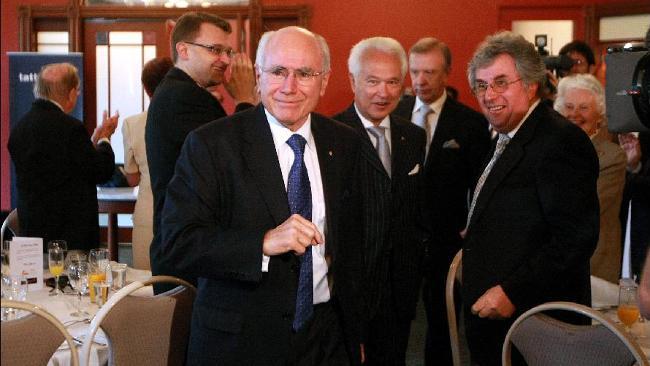Howard's policy nightmares back to haunt Gillard
HOW quickly things change. John Howard, lost an election on two key issues: industrial relations and climate change.

HOW quickly things change. Less than four years ago, Australia's second-longest-serving prime minister, John Howard, lost an election on two key issues: because of (so-called) draconian industrial relations laws introduced during his fourth term in office, and because he was slow to embrace action on climate change.
Fast forward and the Labor government which was the political beneficiary of Howard's defeat is now struggling, at least in part because it has dealt poorly with both these issues.
Climate change policy failure is the obvious one to focus attention on given Kevin Rudd's overstatement and under-delivery on "the greatest moral and economic challenge of our generation". Labor's woes were compounded when Julia Gillard announced a citizens assembly to achieve consensus on climate change action ahead of the last election, only to backflip and move forward with a carbon tax she specifically ruled out days before the election.
Howard was planning an emissions trading scheme in 2007, but now the Liberals don't want to go down that path. Gillard looks likely to legislate her carbon tax, but Tony Abbott is committed to removing it. And it is Abbott, not Gillard, who looks likely to win the next election. Even the billions of dollars, which will flow into direct climate change action when Abbott is prime minister, may not be guaranteed once the conservatives get a look at the Treasury books. But as much as climate change policy has been a nightmare for this government, the other issue of industrial relations reform is becoming increasingly problematic for Labor. And it is a particular problem for businesses looking to remain viable in our changing national economy.
As industrial relations minister, Gillard didn't just "tear up" Work Choices. She also wound back parts of the IR system that had been set up over the previous two decades. Productivity-inducing reforms and cost-cutting mechanisms for businesses were all part of reforms Howard negotiated with the Australian Democrats in 1997, as were changes Paul Keating made in the early 1990s.
These weren't part of Work Choices, which was legislated after Howard won control of both houses of parliament in 2004, but changes were made when the Fair Work Act came into effect after Labor's election in 2007.
The global financial crisis, which Labor likes to crow about saving Australia from, was a test of Howard's IR laws and the legacy of his economic policies over a decade in power (think Goods and Services Tax, banking reforms, government debt reduction and so forth). Labor's quick action to stimulate the economy deserves partial credit. But there should be no denying the important role of policy settings put in place throughout the 1990s and first decade of the new millennium.
The uncertainties on global financial markets, the impact of a strong Australian dollar and the sharp contrast between the booming mining sector and struggling sectors such as retail, tourism and manufacturing will test Labor and its changed policies, especially in the IR policy space.
A key shift occurred in the popular replacement of Work Choices. Businesses are uncomfortable about the restrictions the new laws place on them in a worsening economic climate. If the struggling parts of the Australian economy can't find ways to innovate and bolster their productivity, they will quickly fade.
The government is fighting many fires at the moment, but one front it should open up for the benefit of the national economy is IR reform: not of the Fair Work variety but by incorporating sections of the defeated Work Choices legislation into the policy mix. If Labor won't, our business community won't have the legislative support it needs to withstand the high dollar and the gloomy economic times ahead.
Just as big a problem could be the opposition's timidity on IR. If the polls are right, Abbott would be the next prime minister. After tearing apart a rival who broke her word on a carbon tax, he wouldn't want to reform IR if he didn't commit to doing so at the election. It's time for that commitment.


